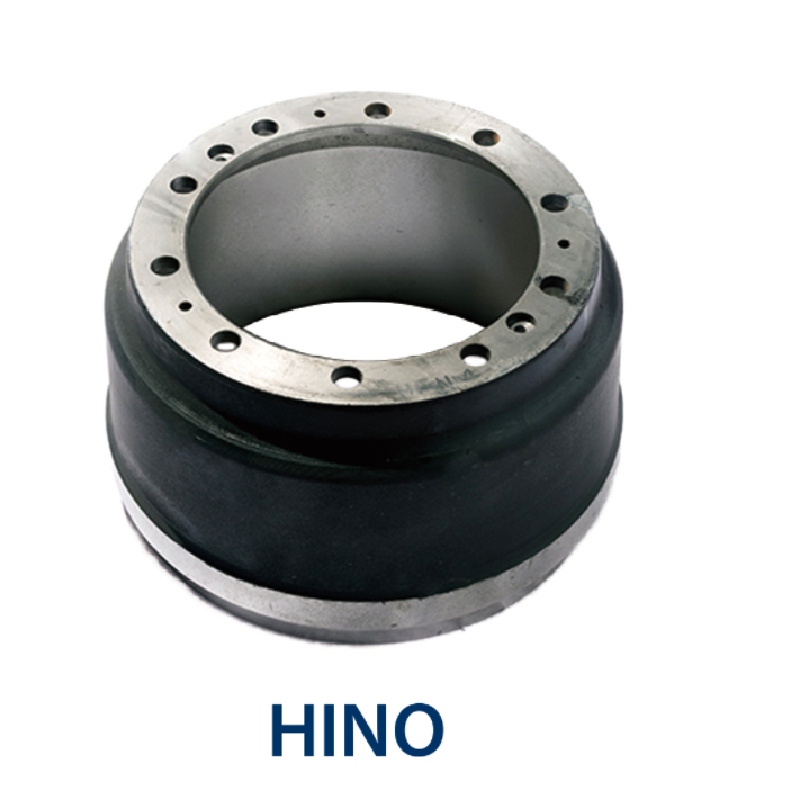Oct . 12, 2024 17:29 Back to list
Maintaining and Cleaning Your Brake Drums for Optimal Performance
How to Clean Brake Drums Effectively
Brake drums are a critical component of many vehicle braking systems, especially in older cars and some heavier vehicles. Keeping them clean is essential for ensuring optimal braking performance and longevity. In this article, we will discuss the importance of maintaining clean brake drums, the tools you need to do the job, and the step-by-step process for cleaning them effectively.
Why Clean Brake Drums?
Brake drums are designed to dissipate heat generated during braking, and they house the brake shoes that create friction to slow down or stop the vehicle. Over time, brake drums can accumulate dirt, dust, grease, and brake dust, which can impair their functioning. When brake drums are not clean, several issues may arise
1. Reduced Braking Efficiency Dirt and grime can prevent the brake shoes from making proper contact with the drum surface, resulting in reduced braking performance. 2. Increased Wear Accumulated debris can wear down the brake shoes quicker than normal, leading to more frequent replacements and increased maintenance costs.
3. Overheating Contaminants can trap heat, which can lead to brake fade, a dangerous condition where brakes become less effective due to excessive temperatures.
4. Noise and Vibration Dirty brake drums may produce unusual sounds during operation, such as squeaking or grinding, which can be annoying and indicative of a problem.
Given these potential issues, it becomes evident that keeping brake drums clean is vital for safety and functionality.
Tools Needed for Cleaning Brake Drums
Before diving into the cleaning process, gather the necessary tools and materials
1. Basic Hand Tools A lug wrench, socket set, and screwdrivers will be required to remove the wheels and drums.
2. Cleaning Supplies Brake cleaner spray, a wire brush, soft cloths, and possibly a brake drum cleaner tool.
3. Safety Gear Safety glasses, gloves, and a dust mask to protect against harmful substances.
clean brake drums

4. A Lift or Jack Stands To safely elevate your vehicle if you're not using a hydraulic lift.
Step-by-Step Process for Cleaning Brake Drums
Now that you have your tools ready, let’s review the cleaning process
1. Preparation Start by parking your vehicle on a level surface and engage the parking brake. Allow the brake components to cool if you have recently driven the car.
2. Remove the Wheels Use the lug wrench to loosen and remove the lug nuts, and then take off the wheels to access the brake drums.
3. Inspect the Brake Drums Before cleaning, inspect the drums for any signs of wear, cracks, or warping. If you notice any significant damage, you may need to replace the drums.
4. Clean the Brake Drums - Spray brake cleaner onto the surface of the drum. This specialized cleaner evaporates quickly and leaves no residue. - Use the wire brush to scrub away any stubborn deposits or rust. Be gentle to avoid scratching the drum surface. - Wipe the drum with a soft cloth to remove any leftover debris.
5. Clean the Brake Shoes While the drums are removed, it’s a good idea to inspect and clean the brake shoes. Use a light brushing motion to remove brake dust, but avoid making contact with the friction material itself.
6. Reassemble Once everything is clean and dry, reattach the brake drums and wheels. Ensure that all components are securely fastened before lowering the vehicle.
7. Test Drive After reassembling, take your vehicle for a short drive to ensure that the brakes are functioning correctly. Listen for any unusual sounds and pay attention to how the brakes feel during operation.
Final Thoughts
Cleaning brake drums is an important task that every vehicle owner should consider as part of their routine maintenance. By following the steps outlined above, you can help ensure that your brakes remain in top condition, providing reliable performance when you need it most. A clean braking system not only enhances safety but also prolongs the lifespan of both your brake drums and shoes. Remember, if you are ever in doubt about your ability to perform this maintenance yourself, it is always best to consult a professional mechanic.
-
Scania Brake Drums: OEM Quality for Optimal Safety & Durability
NewsAug.16,2025
-
R.V.I: Advanced Remote Visual Inspection for Precision
NewsAug.15,2025
-
Discover HYUNDA: Innovative Vehicles, Equipment & Solutions
NewsAug.14,2025
-
R.V.I: Unlock Advanced Insights & Real-time Performance
NewsAug.13,2025
-
Kamaz Brake Drum: Durable & Reliable for Heavy Duty Trucks
NewsAug.12,2025
-
Heavy Duty Iveco Brake Drum - Premium Quality & Safety
NewsAug.11,2025
